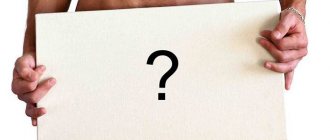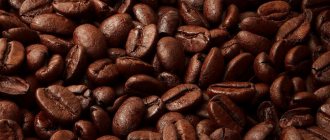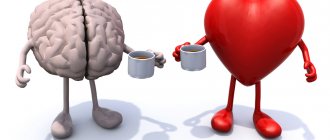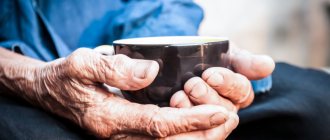Most people who have kidney problems or periodically experience pain in this area do not even think that coffee may be the cause. They usually talk about the dangers of caffeine for the cardiovascular system; people with high blood pressure avoid it, but they often do not mention the effect on the kidneys. It would seem that just a cup in the morning, another 2-3 throughout the day, is not much, but the consequences can be quite serious. Why do your kidneys hurt after coffee, and how not to give up the drink, but also not harm yourself?
How does coffee affect the kidneys?
Approximately 9-12% of caffeine is excreted by the kidneys in unprocessed form. It affects the entire urinary system, as it is a diuretic, that is, it stimulates the excretion of fluid.
- When drinking about 3 cups of coffee, the volume of fluid excreted increases almost 3 times.
- The balance of electrolytes and mineral metabolism processes are disrupted.
- Caffeine constricts blood vessels, contracts all muscles, and therefore the smallest grains of sand can touch the urinary canals, causing pain.
- Caffeine leaches calcium, sodium and potassium. The body does not receive enough water, but the process of diuresis continues. Minerals accumulate in the kidney ducts, stagnate, and the process of stone formation begins.
Caffeine dulls the feeling of thirst, and therefore we cannot feel that the body needs clean water. If you have kidney problems, it is important to always drink a glass of water with every cup of coffee.
Features of stone formation
Few people who have personally experienced urolithiasis know that it could be caused by their addiction to caffeine-containing drinks, in particular coffee (including coffee with milk) and strong tea. Proof of this was the research of Canadian urologists. As a result of a series of experiments, they were able to establish that in healthy people who drank more than three cups of coffee during the day, after just a few days the concentration of calcium compounds in the excreted urine sharply increased. In addition to calcium, the urine of the subjects also contained increased titers of magnesium, citrates and other substances that are directly involved in the formation of kidney stones.
This effect of caffeine-containing drinks on the human urinary system is explained by their pronounced diuretic effect, which results in relative dehydration of the body, thickening of urine and the formation of solid elements in it, which over time turn into stones. That is why doctors not only do not recommend their patients with ICD to drink coffee, but also strictly prohibit the consumption of this drink.
People who have members of their family with urolithiasis should take care of its prevention. In particular, drink a lot of liquid in the form of plain water, so that the body, which is tuned to the formation of stones, is regularly cleansed of salts and does not become dehydrated.
Surely every “bricklayer” asked himself the question of whether drinking coffee is beneficial or harmful for kidney stones. Below we answer the question of whether patients with urolithiasis can drink caffeine-containing drinks.
There is an opinion that coffee for kidney diseases, due to its diuretic effect, helps improve their functioning and cleanses these organs of excess sand and small stones. That is why many patients with urolithiasis are firmly convinced that drinking coffee is only good for them and in no way harmful.
This kind of judgment is inherently erroneous. People suffering from urolithiasis and thinking that they can drink coffee not only reduce their chances of recovery, but also aggravate the course of the disease, provoke the formation of new stones and an increase in the size of stones already existing in the kidneys. Remember, the harm of coffee and its detrimental effect on the kidneys is not a myth, but a real fact, confirmed by numerous studies by respected scientists and the results of clinical examinations of their patients.
Why do my kidneys hurt after drinking coffee?
If lower back pain appears or worsens after drinking a cup of your favorite drink, it means that the process of formation of sand and stones, urolithiasis, has begun.
The sand usually comes out on its own, but as it moves through the channels, pain, stinging, and burning may be felt. Sometimes it hurts in the lower abdomen, in the bladder area. Stones can be small or large, most often there are 1 or 2 of them, with smooth edges, but there can be more of them, and the edges can be sharp, scratching the kidneys and urinary ducts. The more sharp edges there are, the more severe the renal colic is felt.
Other symptoms that show that the kidneys are not coping and do not have time to process caffeine may include:
- Fever;
- Small amount of urine with frequent urination;
- Dark color of urine, pungent odor;
- Aching pain or general discomfort in the lower back.
If you do not pay attention to the slight pain when removing the sand, it will eventually turn into stones. Blood and sediment may appear in the urine. If the pain is sharp and the usual remedies do not help, you should immediately call an ambulance, since treating the kidneys is difficult, and usually requires hospitalization or at least a qualified examination to identify the cause of the pain.
Consequences of drinking too much coffee
Urolithiasis is quite painful. If the stones have many sharp protrusions, then the patient often experiences renal colic. These attacks cause severe pain that cannot be relieved by any painkillers, so the patient must be hospitalized.
If the stone cannot pass through the ducts on its own, then kidney surgery is prescribed. If the patient has the opportunity, stones are removed using expensive laser therapy.
The appearance of stones sharply increases the possibility of developing a tumor on the kidney structures. This danger is real if a person drinks 6-7 cups of coffee per day.
The appearance of a tumor in the kidney is very dangerous, since such tumors are usually malignant. Sometimes the tumor is benign, but this happens only in 7% of cases.
What kind of coffee makes your kidneys hurt: natural or instant?
The kidneys can hurt in any case, since the main substance affecting the body is still caffeine. But there is usually much more of it in instant coffee, since instant coffee is made from the cheaper Robusta variety, which contains more caffeine. In addition, during processing, dyes, emulsifiers, preservatives, impurities and many other chemical components are added to powder or granules, which also negatively affect the kidneys, as they are excreted through them. Therefore, drinking instant coffee may cause a faster onset of urolithiasis.
Instant coffee is contraindicated for people with kidney problems.
Natural coffee is Arabica or Robusta beans, or a mixture of them. Taking care of your kidneys, you can choose 100% Arabica, preferably high-altitude Arabica. It contains less caffeine, only 1.2-1.5% compared to 2.5-2.7% in Robusta, but there are many natural acids, fats and antioxidants that protect the body from the inside. You should also not get carried away with a natural drink, but it is definitely safer than an instant one.
How does decaffeinated coffee affect your kidneys?
This drink still contains minimal doses of caffeine (it is impossible to completely remove it), but it is definitely safer for the kidneys than other options. We are talking about natural coffee. In soluble, of course, caffeine is extracted, but other chemical components are present, and there are 75-85% of them.
Experts do not recommend drinking decaffeinated drinks in large quantities if you have kidney disease. 2-3 cups a day will not cause harm, but you need to focus on your feelings and well-being.
Harm to the product
Before talking about interesting research by scientists about its effect on the course of kidney diseases, it is necessary to share information about the effect of the product on the functioning of organs.
- Drinking coffee is not recommended if your kidneys hurt. After all, it is these organs that remove up to 10% of caffeine unchanged. Because of this, in most people the daily volume of urine increases several times, which leads to disturbances in the metabolic processes of electrolytes and minerals in the body. For example, the product removes calcium and sodium in large quantities.
- It is known that coffee is a natural diuretic. However, the diuretic effect of the drink can cause dehydration, which primarily affects the kidneys. The fact is that with dehydration, the cleansing function of the organs deteriorates. At the same time, the concentration of uric acid, creatinine and urea in the urine increases. But that’s not all: due to dehydration, the load on the kidneys increases significantly, and the risk of thrombosis and blockage of the renal veins increases.
- There is evidence that drinking coffee beans causes a short-term increase in blood pressure. This especially applies to people who do not drink the drink all the time. Doctors have long known that kidney disease is closely related to the development of hypertension. The fact is that high blood pressure is fraught with kidney damage due to chronic narrowing of the lumen in the blood vessels and structural changes in organs (in particular, renal arterioles). Therefore, people with acute kidney disease should avoid drinking caffeine-containing drinks. In the chronic form of the disease, it is allowed to drink coffee in a minimal amount.
- Consumption of freshly brewed grains in large doses (6-7 cups per day) increases the risk of malignant tumors in the kidney structures. However, in fairness, it must be said that scientists have proven that with moderate consumption of the product, the risk of developing kidney, liver and prostate cancer is reduced several times.
Rules for drinking coffee if you have kidney disease or risk thereof
There is no need to give up your favorite drink. Just a few simple tips from leading nephrologists will help you stay healthy.
- Drink coffee made from natural beans, preferably Arabica, not Robusta.
- Do not drink coffee on an empty stomach; the best time is half an hour or an hour after a meal.
- Be sure to drink a glass of clean still water after coffee.
- Do not drink in one gulp - it is better to drink a smaller volume, but in small sips, so that the kidneys have time to process the caffeine.
- Choose coffee that is not too hot or iced.
- It is recommended to add milk or lemon to neutralize the caffeine.
If you notice that your kidneys hurt after a cup of coffee, but then the pain subsides, increase the amount of water you drink per day. Add some physical activity, going for walks is good, but it is important not to get too cold. And be sure to consult your doctor. Many problems can be solved at the initial stage without much pain or intervention, with medication.
To drink or not to drink?
Is it harmful to drink coffee with milk when kidney stones are found? Coffee with milk is a favorite drink of many. Therefore, the question of whether it is possible to drink it for stones and other kidney diseases is one of the first concerns of a person who needs a special diet. Coffee with milk, as well as without it, contains a certain amount of caffeine, so in large quantities it definitely harms the patient’s body and the condition of his kidneys.
Remember that indulging in caffeine-containing products causes hypertension faster and more often in people with urolithiasis than in the rest of the population.
Despite this, some nutritionists are inclined to believe that in minimal quantities, coffee with milk is not capable of harming a sick person and directing the course of the disease in a negative direction. New stones will not form under such dietary conditions, and the size of old ones will not change. Drinking coffee with milk can mainly be done by those patients who have been diagnosed with mild forms of the disease, who strictly adhere to the prescribed diet and periodically monitor the condition of their kidneys.
Conclusion
- Caffeine can have a negative effect on the kidneys: it removes calcium and is a diuretic. Mineral deposits are deposited as sand and sometimes form rocks.
- The first sign of kidney problems is if the lower back begins to hurt after drinking coffee, and pain and burning appears when urinating.
- Instant coffee is more harmful to the kidneys than natural coffee: it contains more caffeine and various chemical additives.
- Decaffeinated coffee does little harm to the kidneys, especially if it is natural. You can drink 3-4 cups a day.
- In any case, if your kidneys hurt after drinking coffee, you need to consult a doctor!
Possible diseases
Excessive coffee consumption, in addition to dehydration, significantly affects the balance of minerals in the body, which are excreted in the urine.
Lack of water and essential elements disrupts the activity of the excretory system and leads to the formation of kidney stones
They can be small - sand - in this case the condition is not difficult to normalize. But sometimes the pathology develops quickly and is accompanied by severe pain in the lumbar region. This indicates a significant size of the stone and the presence of sharp corners, which prevents the fluid from being properly processed and excreted from the body. There are also unpleasant sensations when urinating: pain, burning, urine acquires a pungent odor, changes color, sediment appears and sometimes bloody impurities.
Large stones require removal by surgery or laser crushing, but this is a very expensive procedure.
The appearance of such formations, in turn, can progress into a tumor. According to statistics, only 6% of them are benign.
Diseases of the excretory organs are difficult to cure - it takes a lot of time, carefully selected therapy, and relapses often occur. The kidneys are not easy to restore, so if a person experiences such disorders, most likely, this system will become vulnerable.











